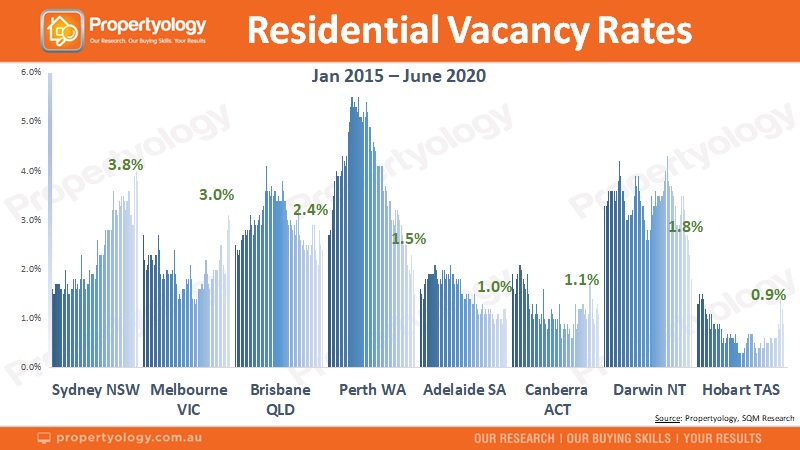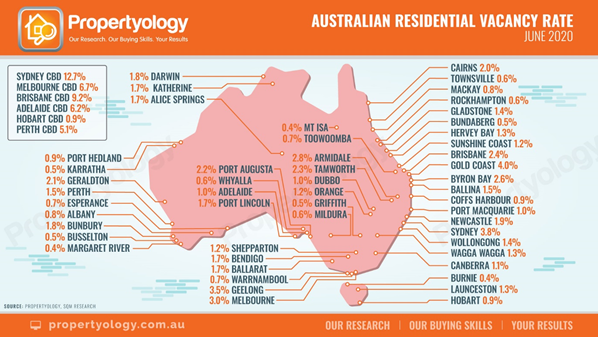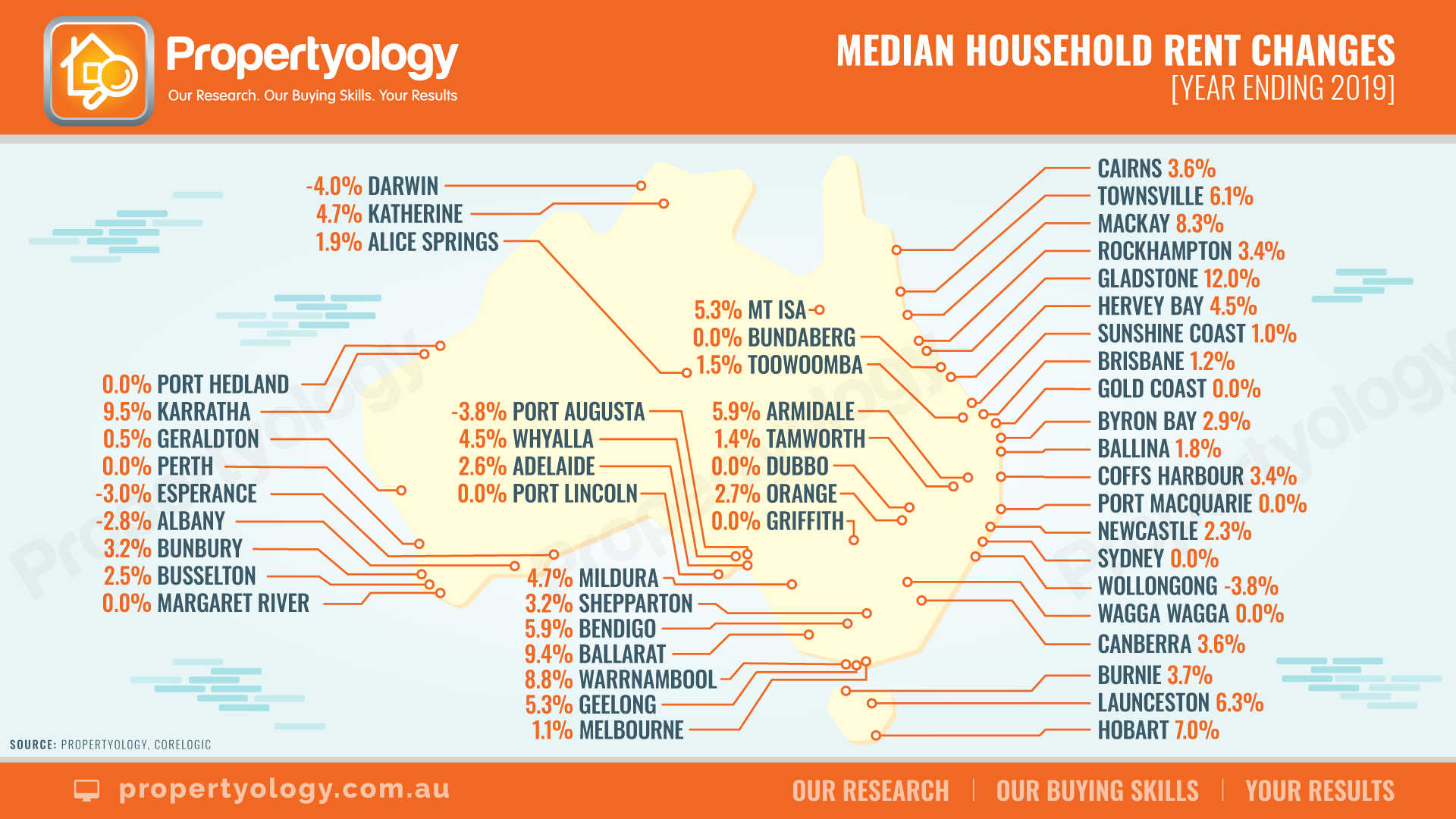Contrary to the current situation in the inner-city rental markets of Sydney and Melbourne, Australia currently has the tightest housing supply conditions in more than a decade.
Market analysts and national buyer’s agency firm Propertyology report that, as the nation progressively opens up and household incomes improve with it, large parts of Australia will have intense pressure on rents in the near term.
A formal assessment of national property market conditions conducted by Propertyology confirms that only 4 out of 52 major Australian cities and towns had a residential vacancy rate of 3 per cent or higher as at the end of June 2020.
“The only thing currently preventing an official declaration of an Australian rental crisis is the sedation effect of the coronavirus containment measures,” said Propertyology Head of Research, Simon Pressley. “Mark my words, sharp rent price rises are inevitable!”
Generally speaking, a market with a balanced supply has a vacancy rate between 2 and 3 percent. Higher than 3 percent means the scales are tipped in the tenant’s favour, typically causing a reduction in median rent prices.
Out of 52 major Australian towns and cities, only four currently in a technical ‘over-supply’ situation - Sydney (3.8 percent), Melbourne (3 percent), Gold Coast (4 percent) and Geelong (3.5 percent).
A vacancy rate below 2 percent resembles a tight rental market and median rents are generally rising. Below 1 percent vacancy is ridiculously tight.
“Right now, 39 out of 52 Australian towns (75 percent of the country) currently have an under-supply, nine locations have a balanced market, and the remaining four are over-supplied,” Mr Pressley said.
While these numbers might surprise some people, they really shouldn’t. Directly before COVID, Propertyology’s 2020 Market Outlook Report flagged this under-supply.
“It’s not as if the coronavirus dropped thousands of extra dwellings from the sky on to this Land Down Under!”
The 3-time Australian buyer’s agent of the year said that rental supply is a biproduct of the activity of mum-and-dad property investors. “Large parts of Australia have seen several consecutive years of low volumes of properties purchased by investors. As local demand continues to rise, the pressure continues to push rents (and yields) higher.”
“Literally this week, the principle of a property management business told our buyer’s agents that they only have nine vacancies among a rent-roll of 1700. This situation is not unusual for most of Australia,” said Mr Pressley.
5 out of 8 capital cities currently have vacancy rates below 2 percent.
According to Propertyology, from Wollongong to Coffs Harbour to Orange and several other locations in New South Wales are very tight. Everything in Queensland from Toowoomba to Townsville has intense pressure right now. Almost every Victorian location outside of Melbourne, the entire state of Tasmania, and the rental market of every location in Western Australia is currently under pressure.
Mr Pressley said that he’s never seen any situation in the last 25-years where so many Australian locations have vacancy rates so low, rental yields are north of 5 percent and interest rates are below 3.5 percent.
For state-by-state commentary (capital city and regional locations),
just CLICK HERE to review the report.
A few really cool graphics are located over the page. Simon Pressley can be contacted for an interview on mobile 0417 634096 or simon@propertyology.com.au



......................................................................
 Simon Pressley is Head of Property Market Research and Managing Director at Propertyology.
Simon Pressley is Head of Property Market Research and Managing Director at Propertyology.
Propertyology is a national property market researcher and buyer’s agency, helping everyday people to invest in strategically-chosen locations all over Australia. The multi-award-winning firm’s success includes being a finalist in the 2017 Telstra Business Awards and 2018 winner of Buyer’s Agency of the Year in REIQ Awards For Excellence.
Disclaimer: while due care is taken, the viewpoints expressed by contributors do not necessarily reflect the opinions of Your Investment Property.